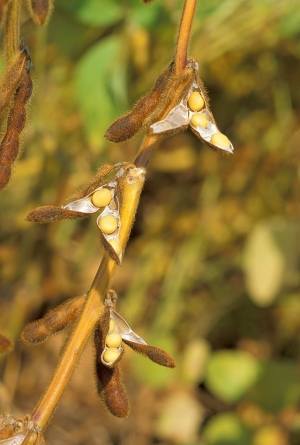


(Posted on 11/05/21)
In markets around the world, including Japan, sustainability is top of mind for consumers and end users. 73% of Japan’s imported soybeans come from the United States and as consumer demand for sustainability has grown in that country, it has become increasingly important for Japanese companies to envision and map out the supply chain for U.S. soybeans.
As sustainability demand ramps up, USSEC’s boots on the ground are staying ahead, partnering with the Japanese industry. Mitsuyuki Nishimura, USSEC country director – Japan, says a number of the organization’s activities address sustainability demand, including:
USSEC Japan is also focused on its largest sustainability project thus far, says Masako (Masi) Tateishi, USSEC director of human utilization for Japan. “The 2020/21 sustainability campaign builds awareness of sustainable U.S. Soy,” she explains. USSEC recently formed a strategic partnership with Japanese media group Nikkei to develop and disseminate the U.S. Soy sustainability story through various media. Tateishi adds that in the coming months (May – September), USSEC Japan will develop a TV program; offer cooking lessons using sustainable U.S. Soy targeting more than 2,000 students in about 100 schools; sponsor WOMAN EXPO 2021; and organize the Sustainable Soy Food Symposium inviting a local sustainability and environmental, social, and corporate governance (ESG) investment expert.
USSEC’s sustainability efforts in Japan, says Nishimura, are beginning to pay off with positive results. Two companies on USSEC’s top target list said they would commit to using the SSAP for the sourcing of soybeans. And in marketing year 20/21, SSAP-certified soy shipments to Japan represented nearly 100% of the country’s total U.S. soy imports as of April, according to Abby Rinne, USSEC director of sustainability.
USSEC Northeast Asia Regional Director Roz Leeck recently sat down with the website Sustainable Japan to talk about the sustainability of U.S. soybeans and soybean products. In a wide-ranging interview, Leeck discussed topics including the SSAP, transparency, regenerative agriculture, and the resiliency of the U.S. soy supply during COVID-19.“USSEC issues SSAP certificates, which verify that soybeans meet certain standards, and these efforts are one way to eliminate consumer anxiety,” said Leeck. “[Nearly all] of the soybeans that Japan imports from the United States are SSAP verified,” she continued. “Therefore, Japanese food companies can easily build transparency regarding sustainability simply by publishing the fact they are purchasing SSAP soybeans.”
ADM and Mitsubishi Corporation have signed a non-binding memorandum of understanding to form a strategic... Read more
ESL Shipping and global steel manufacturer SSAB have agreed on a multi-year extension of the agreement... Read more
Anglo American’s Sakatti copper and polymetallic project in Finland has been designated as a &... Read more
FEFAC, representing the EU compound feed and premix manufacturers, noted with deep concern the announced... Read more
Catering to the growing demand from India’s confectionery, infant formula, and dairy sectors,... Read more
Khalifa Economic Zones Abu Dhabi – KEZAD Group, the largest operator of integrated and purpose... Read more
Rio Tinto will invest $1.8 billion1 to develop the Brockman Syncline 1 mine project (BS1), extending... Read more
Catherine Cobden, President and CEO of the Canadian Steel Producers Association (CSPA), has released... Read more
Enough domestic ferrous scrap is available for electric arc furnace (EAF) steelmakers to supply nearly... Read more
Cargill’s Ocean Transportation business and leading tanker shipping company, Hafnia, have joined... Read more